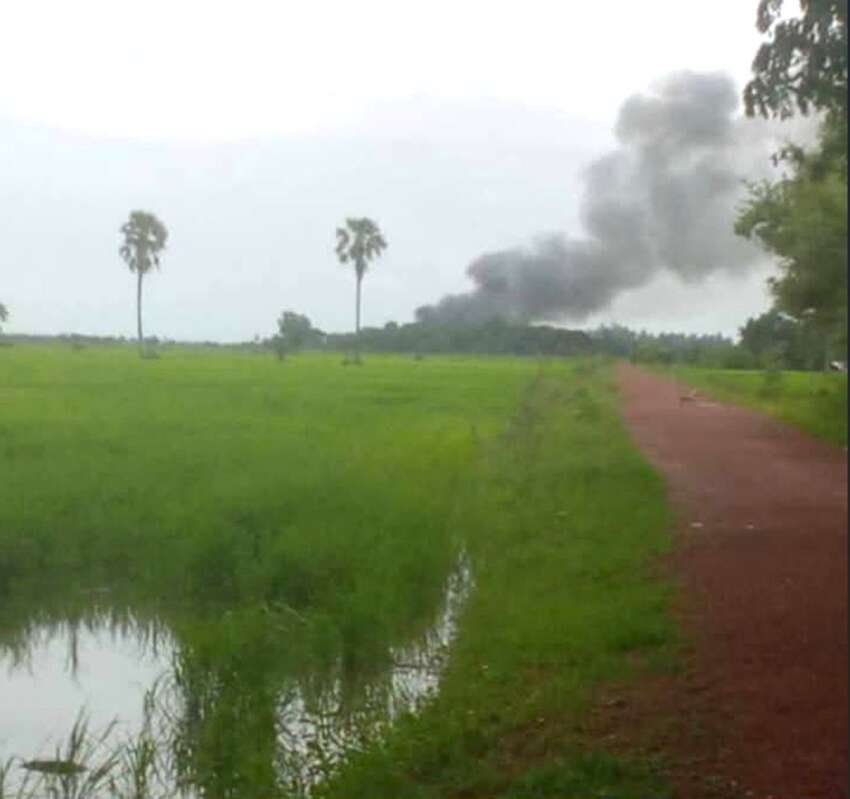
In two villages of Htone Bo Township, Bago Region, the military forces conducted raids resulting in the arrest of over 40 youths, with one civilian sustaining gunshot wounds and several houses being burned down, according to local residents. On July 22, military council troops entered Kyat Su Taw village in Htone Bo Township and attempted to forcibly recruit young people as porters. During this operation, when some attempted to flee, the troops opened fire and pursued them, resulting in the shooting of a local resident named Daw San Aye, who is currently receiving treatment at Thayarwaddy Hospital.
That same morning, military council forces also raided Say Village in Htone Bo Township, where they arrested more than 40 men and several women. The troops also confiscated mobile phones from the villagers. The following day, on July 23, military forces entered the area near Min Hla Dam embankment near Say Village, attempting to recruit more porters. When they found the area deserted as residents had fled, they responded by burning down houses in the area. According to local residents, during the raid on Say Village, the military confiscated villagers’ mobile phones and arrested more than 40 men and several women. On the same day, they raided Kyat Su Taw village, where their shooting at fleeing youth resulted in Daw San Aye’s injury.
A local resident reported that the military forces entered Say Village, seized residents’ mobile phones, and arrested more than 40 men and several women. They then proceeded to Kyat Su Taw village, where their attempt to arrest fleeing youth resulted in the shooting of Daw San Aye. When they entered the Min Hla Dam embankment area and found that residents had fled, they responded by burning down houses. While the military council forces released the arrested women on July 23, the more than 40 men remain in detention as of the current time. This incident represents another example of the military council’s ongoing campaign of violence and intimidation against civilians in Myanmar, particularly in rural areas where resistance to their rule has been strong.



